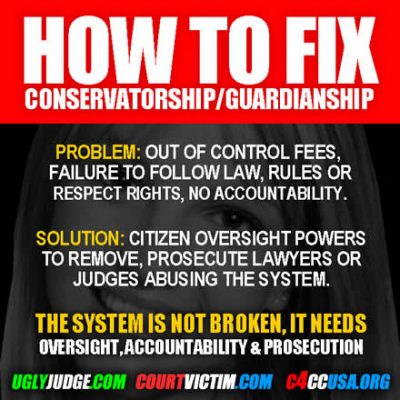Announcing the Guardianship Shield Program

Guardianship abuse has reached the level of a national epidemic. Those whose family members have been abused by a guardian quickly find that there is often no legal redress. The Guardianship Shield program is designed to activate a national network of human rights members who will take constructive action to protect the vulnerable person. The Guardianship Shield is a proactive, grassroots program which issues human rights alerts concerning individuals at risk for problematic or coercive guardianship practices. These alerts go out to all the GS members and to human rights groups. The GS members agree to contact the parties and institutions involved in initiating the actions in question and advise these parties of their concerns. The GS members also agree to contact local media in an effort to raise public awareness of specific incidents of guardianship abuse. The issues that the Shield program addresses : 1) removal of protected person from home 2) Isolation of protected person 3) Efforts to sell home without permission of protected person 4) Attempts to legally restrain concerned family and friends 5) Efforts by guardian to remove family/friends as Power of Health Care 6) Efforts by guardian to withhold necessary medical care from protected person How it Works: If a family or friend is at risk for the above, the Shield member will contact the Shield Coordinator and ask for a public human rights alert to be issued. The Shield Coordinator will evaluate the request and then may issue the alert to all the Shield members and also to other human rights groups. By adding your name to the Shield Program, you are stating that you will take action on the behalf of others in the Shield Program. While we cannot guarantee the results in… Read More




